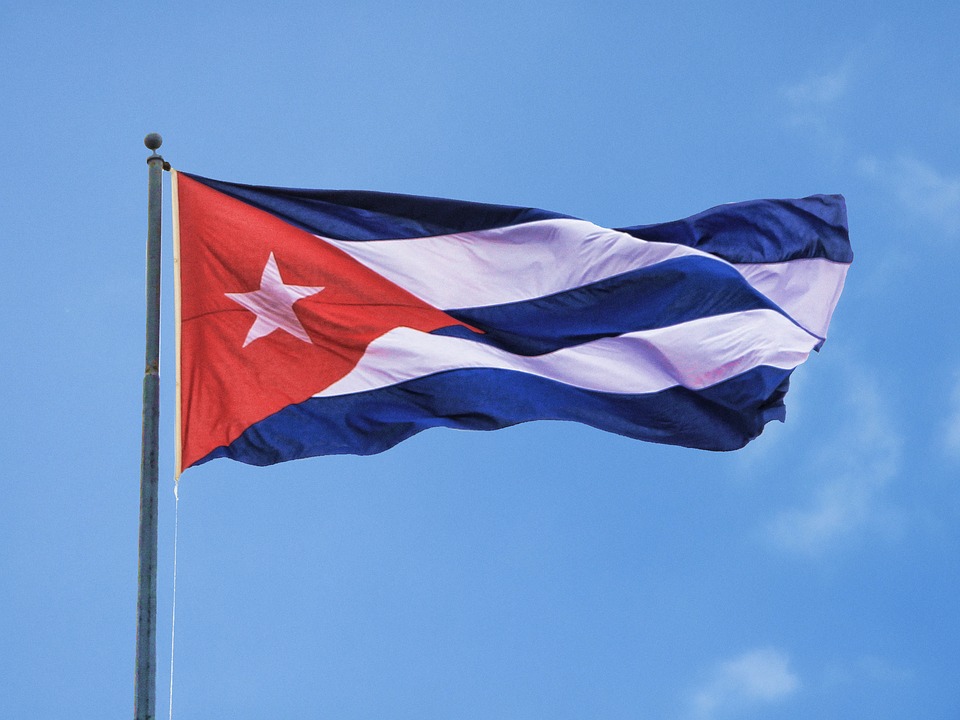Cuba accuses U.S. embassy of abetting country's leading dissident

- Country:
- Cuba
Communist-run Cuba accused the U.S. embassy in Havana on Wednesday of having fomented the "counterrevolutionary" activity of leading dissident Jose Daniel Ferrer whom it arrested nearly two months ago.
Cuba does not typically comment on the activities of dissidents. But the Trump administration, which has tightened the decades-old U.S. trade embargo on Cuba in a renewed attempt to force the one party system to reform, has been campaigning vociferously for Ferrer's release. The U.S. embassy in Havana last week posted on Twitter a video of its top diplomat Mara Tekach with Nelva Ismarays Ortega, partner of Ferrer, leader of Patriotic Union of Cuba (UNPACU), the country's most active opposition organization.
Together they pled for his release. "He has lost half his weight, he has lost a lot of his sight and voice," Ortega said. "He has been beaten up and left without medicine, they haven't let a doctor see him."
In an unusual editorial, Cuban Communist Party newspaper Granma wrote that Ferrer had in fact been arrested on Oct. 1 after a citizen accused the activist and three others of beating him up so much he had to be hospitalized. "All allegations that he has been disappeared, physically mistreated or tortured, or that he receives insufficient food are pure lies deliberately conceived and oriented by the U.S. government and its embassy in Havana," Granma wrote. It also accused the U.S. embassy in Havana of seeking to destabilize the country, recruit mercenaries and identify new sectors of the economy to sanction rather than boosting ties.
The U.S. embassy did not immediately reply to request for comment. Activists say Havana typically invents common crimes to charge them with rather than admitting to arresting them for political motives.
The developments illustrate the widening rift between the United States and Cuba, at odds again just five years after Washington and Havana were re-establishing diplomatic relations and embassies in one another's capitals, in what appeared to be a new era of engagement. U.S. President Donald Trump has sought to unravel that detente initiated by his predecessor Barack Obama.
Some analysts say he has done so with an eye on the swing state of Florida, which has a large community of anticommunist Cuban immigrants, in the 2020 presidential elections, Cuba has been mostly been restrained in its responses to Trump's attempts to unravel Obama's overtures, apparently hoping a friendlier administration will be elected in 2020 to renew attempts at normalizing relations.
(This story has not been edited by Devdiscourse staff and is auto-generated from a syndicated feed.)
- READ MORE ON:
- Cuba
- Donald Trump
- Havana
- Barack Obama
- Washington
- Florida
ALSO READ
Health News Roundup: Pfizer RSV shot meets goals in trial of high-risk adults under age 60; Cuba says drug use on the rise, especially among youth and more
US: New York appeals court rejects Donald Trump's request to delay hush-money trial
''Scuba Divers Dive into Voter Awareness Campaign in Tennessee's Waters''
Former US ambassador sentenced to 15 years in prison for serving as secret agent for Cuba
Love him or loathe him - can jurors be fair to Donald Trump?










